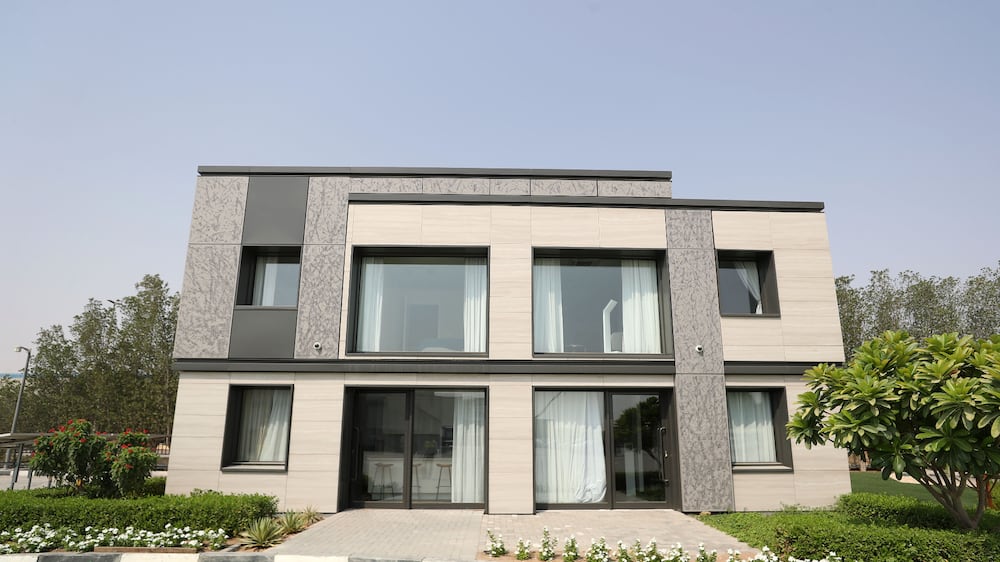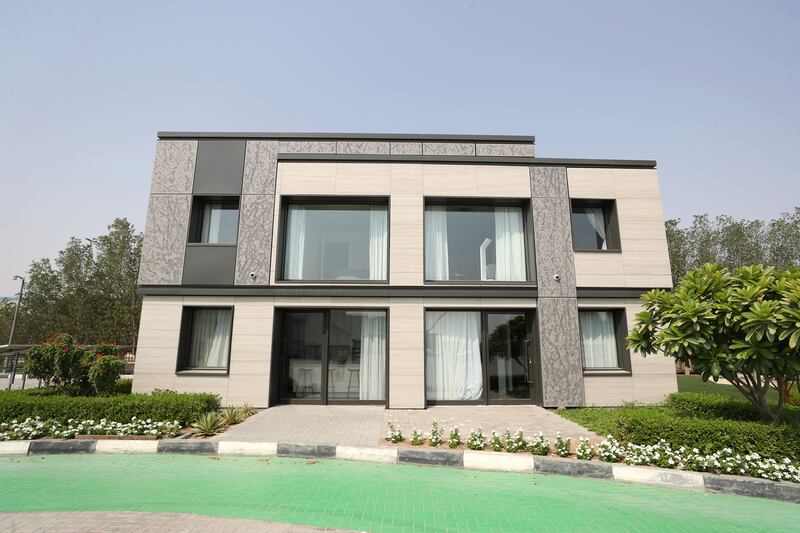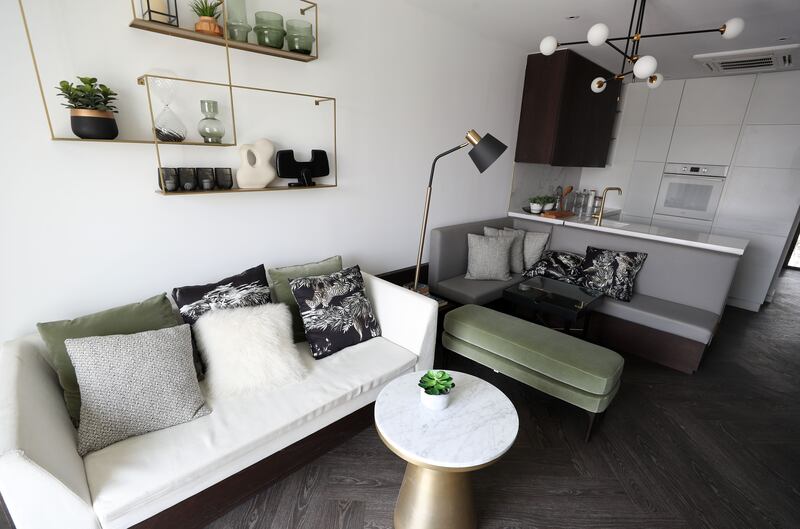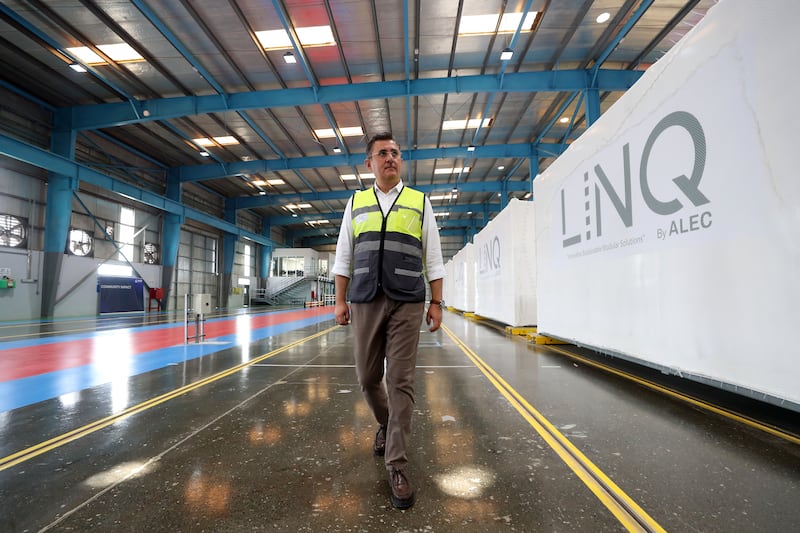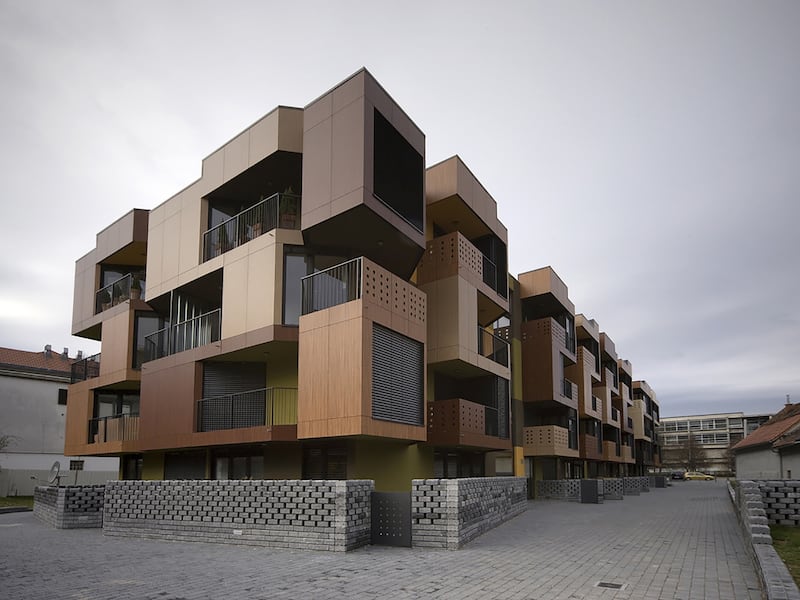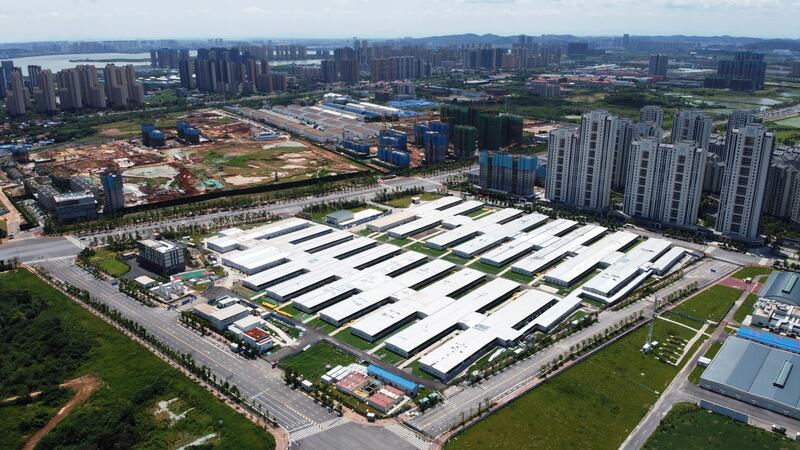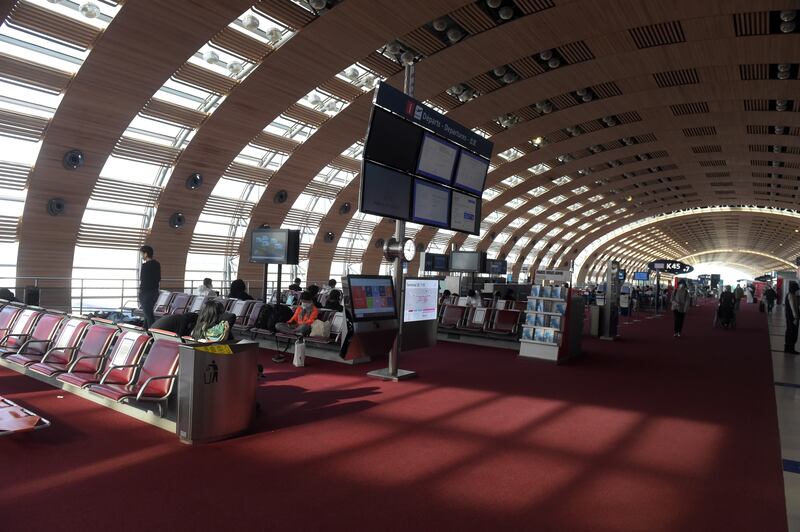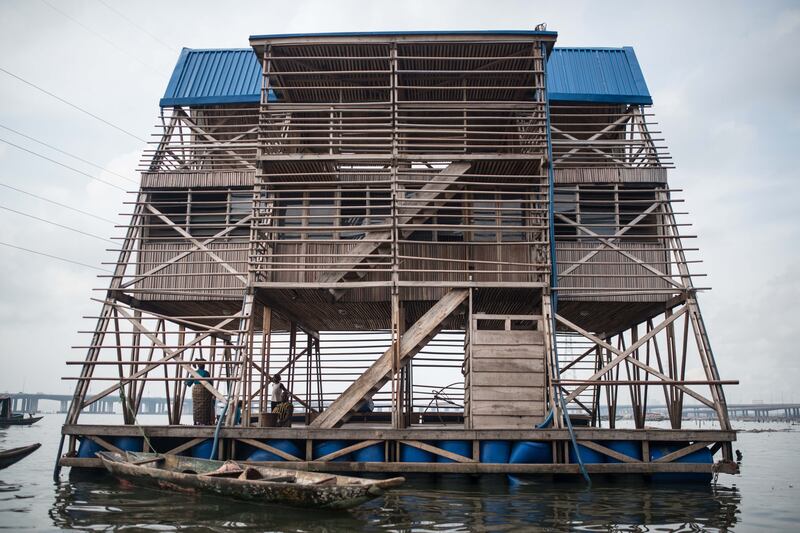From its use in building luxury mountain hotels to developing huge new cities in remote deserts, modular construction could offer a sustainable solution to reduce waiting times for housing as the world's population grows.
Modular construction works by stacking up separate premade sections, called modules, to form a complete building.
Only connecting bolts for the buildings should be required on site.
By minimising the use of concrete, using steel, timber and organic waste materials compressed to form durable slabs, the emerging industry is having a moment as the construction world shifts towards a more sustainable future.
Housing is a pressing international concern, with the global population expected to reach almost 10 billion by 2050. The possibility of decreased waiting times for housing is another reason why modular construction is no longer slipping under the radar.
Dubai-based LINQ Modular has won the first regional licence to use the modular design to erect buildings up to six storeys high.
Dubai Municipality awarded the Alec-owned company a first G-6 modal licence this week. While a Burj Khalifa-sized building made from Lego-type modular bricks is some way off, innovation is accelerating at pace to provide a more sustainable alternative to modern buildings.
“Modular construction is moving the industry more towards an industrial scale of building homes and offices,” said Bashar Kayali, general manager at LINQ Modular.
“The production takes place within a controlled environment with less waste than traditional methods, and better quality.
“It is lean, efficient and the future of construction.
“We have an eye on sustainability in line with government ambitions, this is the only kind of facility here that acts from design, assembly, delivery and erection – all done in a modular way.
“The location of projects can make traditional construction a challenge, with logistical issues preventing a construction project moving quickly.”
Module blocks are factory built
The modules are produced in a giant factory at Dubai Industrial Park, with a controlled environment allowing for greater efficiency and better working conditions for builders.
The finished blocks are then taken directly to a building site where they are bolted together to create a modular home, hotel or office space.
LINQ has already completed modular components for a new luxury hotel on the peak of Jebel Jais, and is due to begin work on the huge 26,500-square-kilometre Neom smart city project in Tabuk province, north-west Saudi Arabia.
It has also built and packed several modular homes ready to be shipped to Cardiff in Wales.
Building in the factory can begin while the site is being prepared. It accelerates a project and allows for more efficiency.
“We do not use concrete, which is a big plus point, and use sustainable material in the production process, with 90 per cent less waste,” said Mr Kayali.
“In a similar process to vehicle manufacturing, components arrive pre-made and fit into a pre-designed template, so builders know items will fit together seamlessly.
“If you are on an island, up a mountain or in the middle of a crowded city like London, logistics can be difficult.
“This is where modular can offer a solution.
“It reduces the transport of loose materials to the site by 90 per cent – in one trip you can bring the unit, complete with walls and windows.”
Offering a global solution?
The industry could provide an affordable solution to rampant population growth, homelessness and emergency accommodation after a natural disaster, as seen in February following the devastating earthquakes in Turkey.
In Slovenia, the mode of build has been used to create 650 social apartments in the aptly named Tetris Apartments, while in Japan, the style has long been used to build homes efficiently in areas of limited space.
The most famous is the Nakagin Capsule Tower that resembles a series of stacked washing machines, while an extension of Charles de Gaulle International Airport in Paris also used a modular design with a combination of curved structures.
A more striking example is the Alibaba Offices in Shanghai, designed by British architects Foster+Partners, while it has also been used to temporarily house farmers in Delhi forced out of their homes by council eviction notices.
A McKinsey & Co report found modular production can speed up the construction process by as much as 50 per cent, while reducing costs by 20 per cent.
“The pace and scale of developments in Dubai is truly impressive and in line with the Dubai 2040 Urban Master Plan, we are keen to ensure this momentum is maintained in the most sustainable manner possible,” said Ahmed Al Salami, principal of research and building studies at Dubai Municipality.
“We are proud to support innovative organisations such as LINQ, that are pioneering advanced construction techniques such as modular construction.
“The introduction of this paradigm will translate to the more rapid and controlled production of high-quality buildings that can meet the needs of a wide range of stakeholders, from the hospitality sector to residential developments and even commercial developments like malls and offices.”
